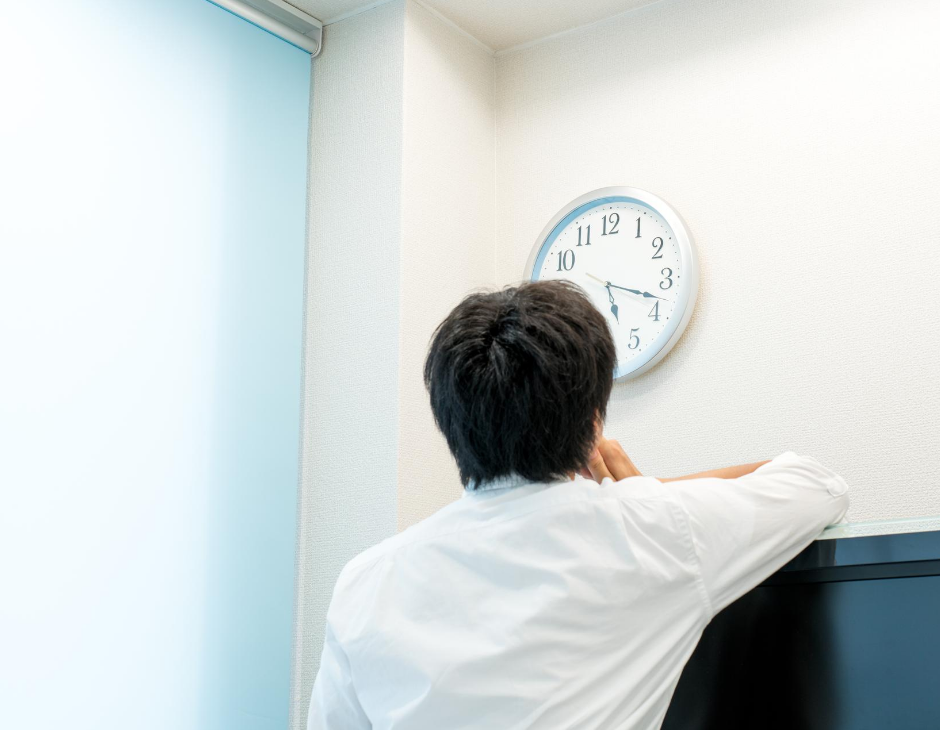Fenced In:

How Structure and Routine Increase Security
“I want a job where I don’t have to look at the clock.”
Have you ever dreamed of endless days with no demands?

As a teacher I often felt like I was being commanded—and reprimanded—by a round face with numbers and hands continuously moving and pointing to what had to be done—and what didn’t get done.
Oh, the idea of a job where things just happen as they happen, with no pressure of time or bells, being able to cruise at a mental speed of 45 mph, no rush, no hurry and what didn’t get done today can be done tomorrow… that would be my dream job. Just peaceful, easy, no pressure…Ahhhhh. That would be the perfect set-up.
Cue the wake-up call: Dream over!

There really is no such world in which time doesn’t matter. A clock is not even necessary, the sun keeps time for us. Since Creation, humans have been guided by the moving sun and shadows of the day, and then darkness and quiet of the night. By Design physiology depends on the regularity of structure and routine—even when many humans buck the idea and dare it to be true. When we veer away from a healthy pattern of living it can often be a setup for disaster.
Life in 2020, per the coronavirus, has served as an alarming wake-up call when it comes to maintaining structure and routine. When S.C. Governor McMaster called for a shutdown of schools and nonessential businesses in mid-March, the brakes of towns, counties, and the state suddenly gripped sending a slow-motion whiplash into effect. School students stayed home with parents who were juggling how to become teachers, coaches and activity directors—on top of trying to adjust to their work-from-home jobs. The abrupt and unanticipated change in daily routines also created a myriad of emotions to surface.
As a licensed professional counselor, I listened as many of my clients experienced a domino effect from the strange circumstances. The first couple of weeks it seemed everyone was braced, hoping this was going to be a quick bounce-back—kind of like what we’ve experienced with hurricanes and serious snow/ice storms. As it moved into weeks three and four, moods seem to turn toward confusion, anxiety and a building anger. By week six, anger and depression were showing up predominantly. Parents were feeling overwhelmed, children were feeling cheated, relationships for all ages were suffering, employees were feeling desperation from the unforeseen financial strains, and the reality began to sink in that this may not go away for a long time.
Most recently there has been an increase in many of those same emotions, with intensifying anxiety, confusion and anger as the future continues to remain uncertain, especially with the school situations. Some people are burned out with the stress of wanting to be cautious to avoid illness, trying to balance living as normally as possible, and while others are ready to announce: “I’m.Just.Done.”
Keep in mind the coronavirus has pushed all of us into uncharted territory. None of us have lived through a pandemic of this magnitude in our lifetime, so there is no roadmap.
As prognosticators prognosticate and planners plan, the uncertain future is forcing us to find creative ways to operate in the workforce and with school, and stay engaged with a sense of purpose all without leaving home.
Research has shown over and over people function more optimally when they know what their expectations are and where their boundaries lie. Quite literally. “One study of children’s reactions to physical boundaries on their school playground found that when a fence was present in their school yard, they happily played right up to its crisscrossed edges. They knew where the boundary of their world was and took advantage of every inch—it allowed them to relax and play in safety. When the fence was removed, the children huddled together close to the school building and did not venture down the hill to where the fence had been. Without the fence, they did not have a clear sense of boundary, of security. Instead of the removal of the fence promoting greater freedom, it produced heightened anxiety and unpredictable behavior. The presence of the boundary brought freedom. Removal of the boundary brought fear.” 1
In a sense, the coronavirus has done this to us by removing our fences, our sense of security. We have, for the last few months at least, been in a bit of a free fall. According to psychiatrist Mimi Winsberg, “The reassurance of a predictable routine calms nerves without us even realizing it. When structure or routine vanish suddenly because of something outside your control, it can feel like having a rug pulled out from under you.” 2
The good news is: It’s not too late to start fresh. Following these four basic guidelines can restore a sense of security and calm even the most fraying nerves:
- Create a daily routine. Set an alarm to get up at the normal time, get dressed, and start the day with a healthy breakfast. The daily routine also includes designating spaces that will be workspaces, both home office and school space. It is recommended, if possible, this space not be in the bedroom.
- Take frequent breaks. Plan to work for about a 25 minutes, and then take a five-minute break. This can be a stretch, walk, water or snack break. (This is also known as the Promodoro Technique.) The fourth break is a longer stop, for 25-30 minutes. For students, using a game board template on which they move a token, or mark off a block can help them track progress and promote a sense of accomplishment and satisfaction. Using sticky notes to set up a game board is also effective. There is something very satisfying about peeling away the sticky notes and seeing the tasks “disappear.”
- Plan a weekly routine. This can include exercise and workout days, cooking days, planning virtual visits with important people days, and keeping date nights routine, even if it means being creative at home. 3
- Make sleep a priority. Keeping regular bedtimes for adults and children is important for the helping rest of the routine to work well. Adequate sleep not only restores health, but builds immunity, something very important in COVID times. Sleep experts recommend a wind-down time to prepare for sleep. This includes light reading, stretching, putting on pajamas, and brushing teeth. Beds should be reserved only for sleep (and intimacy) so our brains associate a differentiation from our daily routines. Watching movies, laptops or tablets should be enjoyed before bedtime in a separate location. If falling asleep seems elusive, sleep experts recommend getting up after 20 minutes of tossing and turning and start over by doing something relaxing. Keeping the bedroom cool can also help promote healthy sleep. 4
It is critically important to be kind to yourself as you work to implement these changes (In some circles this is often referred to as taking dip from the Grace bucket.) One of my favorite sayings was coined by Dr. Garry Landreth: “It’s not what you do, it’s what you do after what you do.” 5
Even if you recognize the last four months have been a mishmash of confusion and chaos, and everything feels out of control, take comfort. It’s not too late. Instead of focusing on feeling like you’ve made a mess out of things, turn the page, give yourself a nourishing self-hug, and alert your family with a fair warning things are about to change. With intentional modifications and following your plan, structure and routine can be restored bringing a sense of security and calm once again.
——————
Dawn White is a Licensed Professional Counselor (LPC), Registered Play Therapist (RPT), and has advanced training in Emotionally Focused Therapy (EFT) (relationship counseling). She works with individuals of all ages, couples and families. Dawn’s home office is located in Chesterfield, SC. She can be reached at 843-287-0745, on FaceBook, or https://sdlwhite.wixsite.com/dawnwhitecounseling/about.
———————
Notes:
1 Healing the Scars of Emotional Abuse, by G. L. Jantz PhD, and A. McMurray
2 “Structure and Routine: Creating Certainty,” by C. Myers
3 “How to Build Daily and Weekly Routines as Shelter-in-Place Drags On,” by B. Krans
4 Sleepfoundation.org
5 Child-Parent Relationship Therapy, Dr. Garry Landreth
Got a story? Share it with us at https://www.county.cool/whats-your-story/




